ASH Announces 2021 Honorific Award Recipients
(WASHINGTON, June 30, 2021) — The American Society of Hematology (ASH) will recognize the following Honorific Awards recipients at the 2021 ASH Annual Meeting in December.
The Honorific Awards recognize exemplary hematologists who have made significant contributions to the field and have been nominated by ASH members. This year’s recipients are a diverse group of pioneering scientists, innovative clinicians, and selfless mentors who have advanced hematology through a variety of vital contributions, from new insights into red blood cells and the microenvironments of cancers; to improved care for people living with sickle cell disease, anemia, and other blood disorders; to dedicated mentorship of underrepresented minority trainees to bolster a strong, growing, and diverse hematology workforce.
“We commend this year’s Honorific Award recipients, whose achievements highlight what an exciting time it is in our field. Their meaningful advances in patient care, research, and mentorship have directly improved the lives of people living with blood disorders,” said ASH President Martin S. Tallman, MD, of Memorial Sloan Kettering Cancer Center. “The Society continues to value opportunities to recognize talented, inspirational leaders and role models from a broad variety of backgrounds, experiences, and career paths whose contributions are invaluably shaping the future of hematology.”
The 2021 Honorific Awards recipients are:
Harvey Lodish, PhD, of the Whitehead Institute for Biomedical Research and the Massachusetts Institute of Technology
Wallace H. Coulter Award for Lifetime Achievement in Hematology
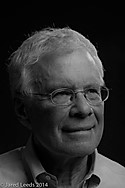 Dr. Lodish is a molecular and cellular biologist best known for his studies of the structure and biogenesis of red blood cells, and he is being recognized for many key contributions to hematology over the past six decades. Beginning with his studies on the regulation of globin messenger RNA (mRNA) translation in the 1970s, Dr. Lodish’s work provided new insights into beta thalassemia. In the 1980s, Dr. Lodish’s lab successfully pioneered the cloning of red blood cell membrane proteins, including anion and glucose transporters; his cloning of the erythropoietin receptor was crucial to the identification of a new family of growth factor receptors, now known as the cytokine receptor superfamily. Throughout the 1990s and 2000s, he worked to identify the function of several key proteins, including JAK and STAT proteins, which are understood today to function in polycythemia vera and other myeloproliferative disorders. More recently, Dr. Lodish led cutting-edge studies using red blood cells as vehicles to deliver drugs and immunomodulatory agents into the human body.
Dr. Lodish is a molecular and cellular biologist best known for his studies of the structure and biogenesis of red blood cells, and he is being recognized for many key contributions to hematology over the past six decades. Beginning with his studies on the regulation of globin messenger RNA (mRNA) translation in the 1970s, Dr. Lodish’s work provided new insights into beta thalassemia. In the 1980s, Dr. Lodish’s lab successfully pioneered the cloning of red blood cell membrane proteins, including anion and glucose transporters; his cloning of the erythropoietin receptor was crucial to the identification of a new family of growth factor receptors, now known as the cytokine receptor superfamily. Throughout the 1990s and 2000s, he worked to identify the function of several key proteins, including JAK and STAT proteins, which are understood today to function in polycythemia vera and other myeloproliferative disorders. More recently, Dr. Lodish led cutting-edge studies using red blood cells as vehicles to deliver drugs and immunomodulatory agents into the human body.
Dr. Lodish is commended not only as a productive researcher, but also as a mentor to more than 200 students and fellows, including two who received Nobel Prizes, who have gone on to make their own key contributions to hematology and other fields.
Margaret Shipp, MD, Dana Farber/Harvard Cancer Center
Stephen Ansell, MD, PhD, Mayo Clinic
Ernest Beutler Lecture and Prize
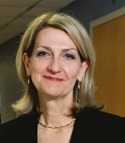 The award recognizes the work of Dr. Shipp to understand the genomics of Hodgkin lymphoma and its effects on the tumor environment, as well as the contributions of Dr. Ansell to identify therapy approaches using immune cells that target the malignant clone.
The award recognizes the work of Dr. Shipp to understand the genomics of Hodgkin lymphoma and its effects on the tumor environment, as well as the contributions of Dr. Ansell to identify therapy approaches using immune cells that target the malignant clone.
Dr. Shipp, the recipient of the basic science award, evaluates genetic and biologic bases of heterogeneity in aggressive lymphoid tumors including the large B-cell lymphomas and Hodgkin lymphoma. Her analyses of the genetic signature of Hodgkin lymphoma revealed a recurrent alteration that was a mechanism of immune evasion and an attractive treatment target. In the resulting clinical trials, the Shipp group characterized mechanisms of response and resistance to the targeted immunotherapy.
 Dr. Ansell, the translational/clinical awardee, focuses on understanding the tumor microenvironment in lymphoma and was able to develop treatment strategies that block inhibitory signals or deplete suppressive cells to eradicate cancer. Together Drs. Shipp and Ansell have brought their breakthroughs in understanding the lymphoma tumor cellular environment out of the research lab and into the lives of patients through more effective immunotherapies.
Dr. Ansell, the translational/clinical awardee, focuses on understanding the tumor microenvironment in lymphoma and was able to develop treatment strategies that block inhibitory signals or deplete suppressive cells to eradicate cancer. Together Drs. Shipp and Ansell have brought their breakthroughs in understanding the lymphoma tumor cellular environment out of the research lab and into the lives of patients through more effective immunotherapies.
Deepika Darbari, MD, Children’s National Hospital and the George Washington University School of Medicine and Health Sciences
Leadership in Promoting Diversity
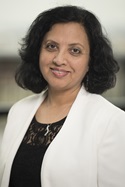 Dr. Darbari is being honored for her significant contributions to the mentorship and training of underrepresented minority researchers and for advancing the care for underrepresented patient populations, primarily individuals living with sickle cell disease (SCD). Dr. Darbari started studying and treating SCD at Howard University an HBCU, where she also saw firsthand the many disparity issues surrounding the condition, such as inadequate funding, limited treatment options, and biases and stigma. She also learned about barriers to career development that minority students faced. She worked to address those issues through her mentorship: Dr. Darbari has mentored many medical students, residents, and fellows whose research projects focused on improving care for individuals living with SCD. She has also fostered the careers of junior investigators of underrepresented minorities as well as served as a member of the ASH Minority Medical Student Award Program, the ASH Committee on Promoting Diversity, and the ASH Women in Hematology working group, all in her continued efforts to increase diversity, equity, and inclusion at ASH and in the health care community at large.
Dr. Darbari is being honored for her significant contributions to the mentorship and training of underrepresented minority researchers and for advancing the care for underrepresented patient populations, primarily individuals living with sickle cell disease (SCD). Dr. Darbari started studying and treating SCD at Howard University an HBCU, where she also saw firsthand the many disparity issues surrounding the condition, such as inadequate funding, limited treatment options, and biases and stigma. She also learned about barriers to career development that minority students faced. She worked to address those issues through her mentorship: Dr. Darbari has mentored many medical students, residents, and fellows whose research projects focused on improving care for individuals living with SCD. She has also fostered the careers of junior investigators of underrepresented minorities as well as served as a member of the ASH Minority Medical Student Award Program, the ASH Committee on Promoting Diversity, and the ASH Women in Hematology working group, all in her continued efforts to increase diversity, equity, and inclusion at ASH and in the health care community at large.
Elizabeta Nemeth, PhD, University of California Los Angeles
William Dameshek Prize
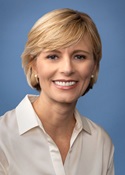 Dr. Nemeth is being recognized for her outstanding work to understand the regulation of iron homeostasis. Dr. Nemeth’s work helped define the role of the iron-regulatory hormone hepcidin in different iron disorders including hereditary hemochromatosis, β-thalassemia and anemia of inflammation, elucidated the mechanism of action of hepcidin, and developed novel hepcidin-targeted candidates for the treatment of iron disorders. Dr. Nemeth described how mechanisms limiting iron availability to invading pathogens are crucial in defending against infection, and that those same mechanisms are responsible for the development of anemia in many chronic inflammatory conditions. Dr. Nemeth, professor of medicine at UCLA as well as the founder and director of the UCLA Center for Iron Disorders, has research interests spanning iron pathobiology in pregnancy, infectious disease, inflammatory disorders such as chronic kidney disease, and hemoglobinopathies. Her work has laid the foundation for promising new therapies for anemias and iron overload disorders.
Dr. Nemeth is being recognized for her outstanding work to understand the regulation of iron homeostasis. Dr. Nemeth’s work helped define the role of the iron-regulatory hormone hepcidin in different iron disorders including hereditary hemochromatosis, β-thalassemia and anemia of inflammation, elucidated the mechanism of action of hepcidin, and developed novel hepcidin-targeted candidates for the treatment of iron disorders. Dr. Nemeth described how mechanisms limiting iron availability to invading pathogens are crucial in defending against infection, and that those same mechanisms are responsible for the development of anemia in many chronic inflammatory conditions. Dr. Nemeth, professor of medicine at UCLA as well as the founder and director of the UCLA Center for Iron Disorders, has research interests spanning iron pathobiology in pregnancy, infectious disease, inflammatory disorders such as chronic kidney disease, and hemoglobinopathies. Her work has laid the foundation for promising new therapies for anemias and iron overload disorders.
Connie Westhoff, PhD, New York Blood Center
E. Donnall Thomas Lecture and Prize
 Dr. Westhoff is an internationally recognized investigator in the field of transfusion medicine known for her discovery that RH genetic diversity and mutation contributes to RH incompatibility following blood transfusion. She is also credited with establishing high-throughput DNA-based methods to genotype blood group antigens more efficiently, which has led to advances that fundamentally changed and improved standard practice in blood transfusion. These contributions have been especially significant for patients in need of long-term transfusion support, as well as for individuals with sickle cell disease who need more precise matching for blood transfusion. Dr. Westhoff has served as a board member of the AABB, as the chair of the ASH Scientific Committee on Transfusion Medicine, and as a member of the board of the National Blood Foundation, demonstrating her enduring commitment to the transfusion community.
Dr. Westhoff is an internationally recognized investigator in the field of transfusion medicine known for her discovery that RH genetic diversity and mutation contributes to RH incompatibility following blood transfusion. She is also credited with establishing high-throughput DNA-based methods to genotype blood group antigens more efficiently, which has led to advances that fundamentally changed and improved standard practice in blood transfusion. These contributions have been especially significant for patients in need of long-term transfusion support, as well as for individuals with sickle cell disease who need more precise matching for blood transfusion. Dr. Westhoff has served as a board member of the AABB, as the chair of the ASH Scientific Committee on Transfusion Medicine, and as a member of the board of the National Blood Foundation, demonstrating her enduring commitment to the transfusion community.
Denisa Wagner, PhD, Harvard Medical School and Boston Children’s Hospital
Kwaku Ohene-Frempong, MD, Sickle Cell Foundation of Ghana; Director Emeritus, Comprehensive Sickle Cell Center, Children's Hospital of Philadelphia, Professor Emeritus of Pediatrics, University of Pennsylvania
Henry M. Stratton Medal
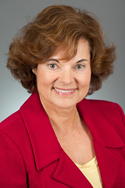 Dr. Wagner, the basic science awardee, is well known for her contributions to the fields of vascular biology, inflammation, and thrombosis. Her discovery that von Willebrand factor (VWF) is contained in a reservoir within endothelial cells ready to coat the inside of blood vessels to aid platelet and leukocyte recruitment, was important to the understanding of vascular response to injury. The regulated release of VWF guided subsequent studies on the molecular basis of von Willebrand disease. Her recent study of neutrophil extracellular traps (NETs), chromatin actively ejected from neutrophils, has led to the discovery of a link between neutrophil activation and thrombosis. This link revealed a significant pathological contribution of “immuno-thrombosis” to ischemic organ injury and cancer.
Dr. Wagner, the basic science awardee, is well known for her contributions to the fields of vascular biology, inflammation, and thrombosis. Her discovery that von Willebrand factor (VWF) is contained in a reservoir within endothelial cells ready to coat the inside of blood vessels to aid platelet and leukocyte recruitment, was important to the understanding of vascular response to injury. The regulated release of VWF guided subsequent studies on the molecular basis of von Willebrand disease. Her recent study of neutrophil extracellular traps (NETs), chromatin actively ejected from neutrophils, has led to the discovery of a link between neutrophil activation and thrombosis. This link revealed a significant pathological contribution of “immuno-thrombosis” to ischemic organ injury and cancer.
Dr. Ohene-Frempong, the translational/clinical awardee, is a world leader in the treatment of sickle cell disease (SCD) and has established many of the current practice standards for treatment of SCD. One of his key research achievements was in observing the frequency of strokes in young children with SCD, which laid the groundwork for subsequent studies to establish transcranial doppler screening for stroke risk assessment in the patient population. 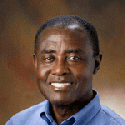 Dr. Ohene-Frempong was also instrumental in advancing clinical trials of hydroxyurea therapy in children with SCD, establishing bone marrow transplant as a cure for SCD, and providing evidence for the benefits of transfusion therapy for SCD complications. For several years, he has led the development of SCD treatment centers in the U.S. and globally, including in his native Ghana as the president of the Sickle Cell Foundation of Ghana and the national coordinator for the ASH Consortium on Newborn Screening in Africa (CONSA).
Dr. Ohene-Frempong was also instrumental in advancing clinical trials of hydroxyurea therapy in children with SCD, establishing bone marrow transplant as a cure for SCD, and providing evidence for the benefits of transfusion therapy for SCD complications. For several years, he has led the development of SCD treatment centers in the U.S. and globally, including in his native Ghana as the president of the Sickle Cell Foundation of Ghana and the national coordinator for the ASH Consortium on Newborn Screening in Africa (CONSA).
Jonathan Licht, MD, University of Florida Cancer Center
Anthony Goldstone, BM BCh, FRCP, FRCPath, University College London Hospital
Mentor Award
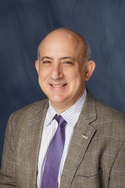 Dr. Licht, the basic science awardee, has dedicated the past 30 years of his career to enhancing his trainees’ talents and helping them become effective clinicians, researchers, and teachers. He is committed to helping others grow by offering advice, whether related to science, career, or the personal lives of his trainees. Dr. Licht has served as a valuable mentor in the ASH-EHA Translational Research Training in Hematology one-year mentorship and training program, and in his current role as the director of the University of Florida Cancer Center. He is always looking for ways to advance careers by identifying new grant opportunities, linking faculty and trainees, or forging faculty collaborations. Dr. Licht’s mentees emphasize his passion for science, joy for life, and unparalleled ability to inspire his mentees with the same attributes. Dr. Licht’s own research focuses on abnormalities in the proteins that control transcription from DNA into RNA and ways to reverse aberrant gene regulation and restore normal cellular growth.
Dr. Licht, the basic science awardee, has dedicated the past 30 years of his career to enhancing his trainees’ talents and helping them become effective clinicians, researchers, and teachers. He is committed to helping others grow by offering advice, whether related to science, career, or the personal lives of his trainees. Dr. Licht has served as a valuable mentor in the ASH-EHA Translational Research Training in Hematology one-year mentorship and training program, and in his current role as the director of the University of Florida Cancer Center. He is always looking for ways to advance careers by identifying new grant opportunities, linking faculty and trainees, or forging faculty collaborations. Dr. Licht’s mentees emphasize his passion for science, joy for life, and unparalleled ability to inspire his mentees with the same attributes. Dr. Licht’s own research focuses on abnormalities in the proteins that control transcription from DNA into RNA and ways to reverse aberrant gene regulation and restore normal cellular growth.
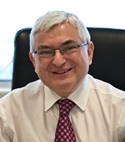 Dr. Goldstone, the clinical awardee, is recognized in his own right as a pioneer in the field of bone marrow transplantation, and he offered his expertise to the next generation of pioneers by taking an active mentorship role in a diverse population of trainees at his institution. His guidance has supported mentees who have gone on to become chief medical officers and presidents of medical societies, and his eye for equal opportunity mentoring has made him an especially dynamic advocate and role model. Dr. Goldstone’s mentees say that his natural inclination to help others, offer them opportunities to work on complex projects, and allow them space to grow within those projects, made them feel he was even more committed to their achievements than his own. Dr. Goldstone’s own achievements include helping to initiate what will be the largest clinical hematology center in Europe.
Dr. Goldstone, the clinical awardee, is recognized in his own right as a pioneer in the field of bone marrow transplantation, and he offered his expertise to the next generation of pioneers by taking an active mentorship role in a diverse population of trainees at his institution. His guidance has supported mentees who have gone on to become chief medical officers and presidents of medical societies, and his eye for equal opportunity mentoring has made him an especially dynamic advocate and role model. Dr. Goldstone’s mentees say that his natural inclination to help others, offer them opportunities to work on complex projects, and allow them space to grow within those projects, made them feel he was even more committed to their achievements than his own. Dr. Goldstone’s own achievements include helping to initiate what will be the largest clinical hematology center in Europe.
The awards will be presented during the 63rd ASH Annual Meeting, December 11-14, 2021.
Learn more about the ASH Honorific Awards.
The American Society of Hematology (ASH) (www.hematology.org) is the world’s largest professional society of hematologists dedicated to furthering the understanding, diagnosis, treatment, and prevention of disorders affecting the blood. For more than 60 years, the Society has led the development of hematology as a discipline by promoting research, patient care, education, training, and advocacy in hematology. ASH publishes Blood (www.bloodjournal.org), the most cited peer-reviewed publication in the field, and Blood Advances (www.bloodadvances.org), an online, peer-reviewed open-access journal.
Contact:
Leah Enser, American Society of Hematology
[email protected]; 202-552-4927